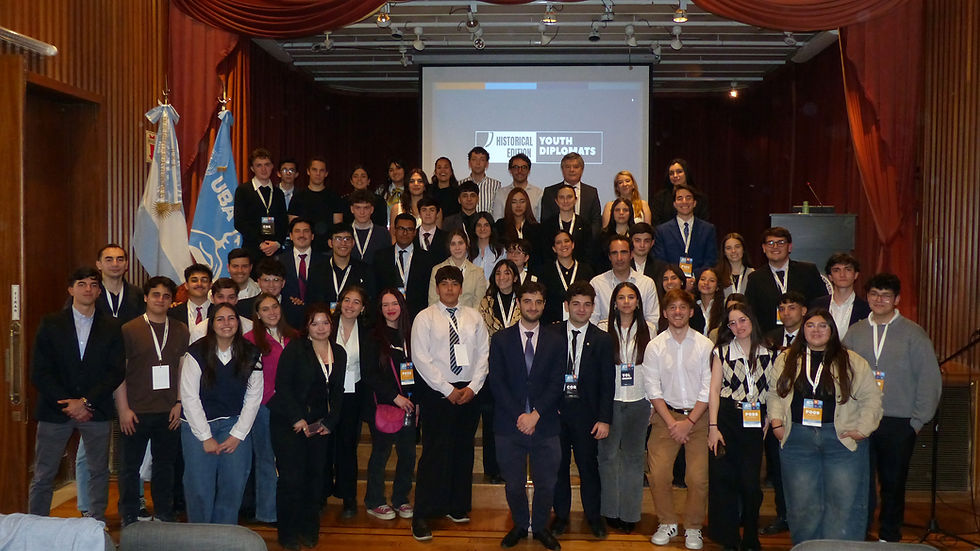Resilience Against Disinformation: A Challenge for Academia and Society
- Kairos Global

- Oct 3, 2025
- 2 min read
In an open lecture at the School of Economic Sciences, expert Raheli Baratz invited students and faculty to rethink how we process information and to strengthen resilience against media manipulation.

On Thursday, September 18, the Sábato Auditorium of the School of Economic Sciences at the University of Buenos Aires hosted a unique event that combined academic reflection with practical training around a pressing contemporary challenge: how to cultivate critical thinking and confront disinformation in a world saturated with information.
The event was organized by Youth Diplomats, together with the Center for Studies and Debate on International Organizations (CEDOI-UBA) and with the sponsorship of the World Zionist Organization, with the aim of offering students, faculty, and the broader public a space for learning and debate within the framework of a public university. At a time when disinformation and oversimplified narratives dominate global agendas, holding such a conference at a public institution underscores the UBA’s commitment to critical education and democratic access to knowledge.
The lecture was delivered by Dr. Raheli Baratz (Rix), Ph.D., a renowned international expert on community resilience and on the study of cognitive biases and prejudices that shape the way we interpret reality. Dr. Baratz also serves as Director of the Division of Diaspora Relations at the World Zionist Organization, where she leads programs promoting intercultural dialogue and community empowerment. Her presentation at UBA was delivered in English, with simultaneous Spanish translation.

During her talk, Dr. Baratz highlighted the importance of fact-checking as a fundamental practice, while stressing that fact verification alone is not sufficient without building individual and collective resilience to face information overload and disinformation campaigns. She invited participants to “apply the same analytical rigor we use in business or scientific research when examining media narratives,” reminding the audience that in the digital era, true leadership lies in the ability to distinguish signal from noise.
The lecture also presented concrete examples and strategies applicable across different contexts: questioning sources, identifying biases, and recognizing who benefits from a given narrative. As Dr. Baratz noted, “the most successful leaders are those who look beyond the surface and spot opportunities where others only see noise.”
The event not only offered conceptual insights but also created a space for interaction where students and faculty practiced exercising a critical lens toward information. By taking place at a public university, this activity reaffirmed the central role of the University of Buenos Aires as a plural forum open to today’s most pressing global debates, contributing to the formation of a critical and resilient citizenry.




















Comments